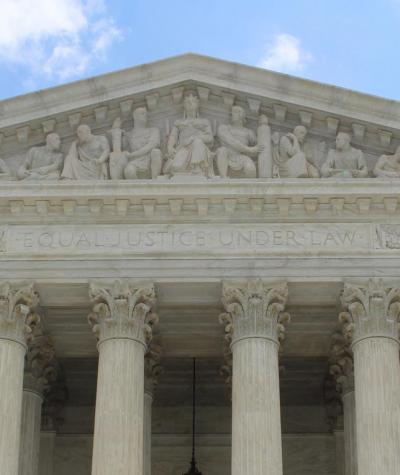Yesterday, more than 30 different parties filed “friend-of-the-court” briefs urging the U.S. Supreme Court to set a limit on extreme partisan gerrymandering in the landmark partisan gerrymandering case Gill v. Whitford. CLC is arguing the case, along with co-counsel, at the Supreme Court on October 3.
We’re especially gratified at the strong support from leading Republicans who have joined key Democrats in signing onto amicus briefs urging the court to take action. Governors Arnold Schwarzenegger and John Kasich are joined by seven other current or former Republican governors. Additionally, Senators Bob Dole, Alan Simpson, John McCain and Olympia Snowe are joined by 23 other current or former Republican members of Congress. From more moderate members to Congressman Mike Meadows, the chair of the Freedom Caucus in the House, a diverse array of Republican leaders recognize the system is broken and are urging the court to take a stand and rein in extreme partisan gerrymandering.
In addition to briefs filed by elected officials, others were filed by historians, political scientists, geographers, civil rights leaders, law professors and more asking the court to affirm the lower court’s ruling and strike down Wisconsin’s mapping scheme. Read short summaries of some of the briefs here.
Extreme partisan gerrymandering violates both the Equal Protection Clause, by diluting the electoral influence of a targeted group of voters, and the First Amendment, by penalizing these voters because of their political beliefs.
That’s what CLC and our co-counsel argue in our merits brief submitted last week to the U.S. Supreme Court in Gill v. Whitford.
While Whitford is rooted in the extremity of the maps drawn by Republicans in Wisconsin in 2011 (under secretive conditions straight out of a John Grisham thriller), this challenge to gerrymandering is not a stalking horse for one party – or the other. Support for curbing the practice of extreme gerrymandering come from both sides of the aisle, and with good reason.
As CLC writes in the brief, what’s really at stake here is the health and well-being of our democracy, at both the state and national levels.
When Democratic votes are worth less than Republican votes – or when Republican votes are worth less than Democratic ones – there is a whole cascade of effects. Legislators become less responsive to their constituents, bipartisan problem-solving is increasingly rare, and voters become disillusioned and disengaged with government, and with voting. Democracy itself is degraded.
Across the country, at both the state legislative and congressional levels, plans now in effect have exhibited the largest efficiency gaps in modern times. Gerrymanders are more persistent than ever. Technological advances have allowed gerrymanders to gain better information about voters, and draw boundaries with a finer pen.
Why is this the court’s problem to solve? Quite simply, in this instance, the political system cannot self-correct. The parties in charge have no interest or incentive to do so. Politically, it is a self-perpetuating problem and it cries out for judicial wisdom.
CLC is hopeful that the Supreme Court will uphold the lower court’s ruling declaring Wisconsin’s 2011 extreme partisan gerrymander unconstitutional, and establish “a workable standard for measuring a gerrymander’s burden on representational rights.” Vieth, 541 U.S. at 311 (Kennedy, J., concurring in the judgment) (emphasis added).

